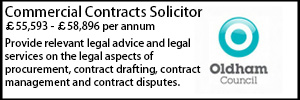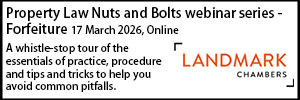London borough fails in Upper Tribunal bid to recover – through service charge – cost of work needed to remedy structural defects
- Details
The London Borough of Tower Hamlets cannot recover the cost of rectifying structural defects in two blocks of flats from leaseholders’ service charges, the Upper Tribunal (Lands Chamber) has ruled.
The council had already lost in the First-tier Tribunal, but had appealed in a case brought by leaseholders in the Brewster House and Malting House blocks.
Both have structural defects arising from the use of the ‘large panel system’ when built in the 1960s and need remedial works estimated at some £9m for both.
The blocks were built using a similar method to that at Ronan Point in neighbouring Newham, which partly collapsed in a gas explosion in 1968.
Various strengthening works were done then and subsequently but a 2018 survey in the wake of the Grenfell Tower fire disaster concluded the reinforcement was insufficient to cope with normal loading in both blocks.
Judge Elizabeth Cooke looked in her judgment at whether any part of the cost of Tower Hamlets’ planned major works was recoverable from leaseholders as being a component of the cost of work to maintain the blocks or alternatively via the ‘sweeper’ provisions in the leases covering additional costs.
She said ‘maintain’ had a different meaning from ‘repair’ and could mean something preventive rather than remedial.
But covenants to repair or to maintain were not covenants to remedy structural defects, nor to make safe a building that was not safe when built, she said.
Judge Cooke said: “In particular, in my judgment a tenant who signs up to pay for the landlord's compliance with a covenant to ‘repair' and to ‘maintain’ has to be taken to know that the courts have specifically held that neither of those terms includes an obligation to remedy a structural defect. Such a tenant would not intend that the obligation to do just that could be tucked in to the general words of a future-proofing clause…”
The judge said the ‘sweeper’ clause in the leases was intended to include anything that the landlord might reasonably do - for example to provide for items not thought of when leases were granted.
But she said only express words would generate an obligation of such a vastly different kind and likely scale from the other obligations specified, such as that involved in rectifying these safety defects.
“Could the parties have intended it to include the potentially open-ended and ruinously expensive obligation in question here?”, Judge Cooke asked.”In my judgment clearly not.”
Landmark Chambers, from which barristers acted for both Tower Hamlets and the leaseholders, said: “The result is hugely important for the parties: Tower Hamlets currently faces a significant hole in its Housing Revenue Account, whilst an unfavourable outcome would have seen the leaseholders facing ruinously expensive service charges.”
It said the judgment arguably had wider significance for landlords and tenants in buildings with new discovered defects such as reinforced autoclaved aerated concrete (RAAC) or other as yet unknown faults.
Mark Smulian
Sponsored articles
Walker Morris supports Tower Hamlets Council in first known Remediation Contribution Order application issued by local authority
Unlocking legal talent
Legal Officer
Senior Solicitor - Property
Legal Director - Government and Public Sector
Locums
Poll















































